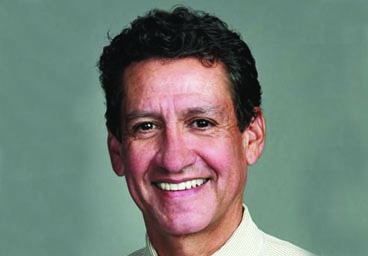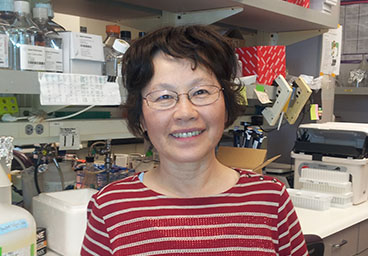
Principal Investigators

Sheri Krams, PhD
Associate Professor
Department of Surgery
Program in Immunology
Education:
Ph.D., University of California, Davis
Postdoctoral Fellowship, University of California, San Francisco
Research Interests:
Functions of microRNAs in transplantationIdentification and function of NK cells
Apoptosis and tissue damage in transplantation and liver disease
We have begun studies directed at elucidating the roles of microRNAs in transplantation. After profiling global miRNA expression in human small bowel biopsy, we discovered that unsupervised hierarchical clustering of microRNA patterns could distinguished rejecting from non-rejecting biopsies. Liver transplant outcome is also significantly affected by viral recurrence or reactivation in the post-transplant period, in part exacerbated by the immunosuppressed status of the host immune system. We have developed a model using rat orthotopic liver transplantation and total lymphoid irradiation (TLI) to study the immune mechanisms of tolerance induction in liver allograft recipients. Our studies suggest that concomitant viral infection can augment alloimmune responses in liver allograft recipients and can perturb the immune regulatory mechanisms that promote tolerance. Our studies have challenged the paradigm that NK cells do not participate in the rejection of solid organ grafts. We have demonstrated that recipient-derived NK cells not only infiltrate rejecting liver grafts early after transplantation but also are a significant source of IFNg thus bridging the innate and adaptive immune responses post transplant. We examined the activation receptors involved in the interaction of NK cells with dendritic cells (DC) since NK cells have the potential to mediate both maturation and killing of DC and this could alter T cell priming post-tarnsplant. Using RNAi techniques we demonstrated that DC stimulation of NK cells to produce IFNg is mediated through NKp46 and that NK cell killing of DC is independent of NKp30, NKp46 and NKG2D. Our studies indicate that NK cells interact with DC and tumors through distinct activating receptors – NKp46 and NKp30/NKG2D respectively. These data are important for the development of therapeutics that will target NK-DC interactions post-transplant without compromising the ability of NK cells to kill virally-infected or transformed cells.

Olivia Martinez
Professor
Department of Surgery
Program in Immunology
Education:
Ph.D., University of California, Berkeley
Research Interests:
Cytokine regulation of alloreactivityGrowth and survival of EBV+ B cell lymphomas
Cytokine signal transduction pathways
Immune mechanisms of tolerance post-transplantation
I have two major areas of focus in the laboratory. First, I am interested in Epstein Barr Virus-mediated mechanisms of immune evasion with particular focus on resistance to cell death receptor pathways of apoptosis in EBV B cell lymphomas, the characterization of the human T cell response to EBV infected B cells, host microRNAs induced by EBV infection and effects of immunosuppressive drugs on growth and survival of EBV B cell lymphomas. The second area of study addresses tolerance induction in solid organ transplantation. Specifically, examining the generation and characterization of regulatory T cells in allogeneic responses and the role of alternate co-stimulatory molecules in alloreactivity.

Carlos O. Esquivel, MD, PhD
Professor of Surgery
Chief, Division of Transplantation
Director, Liver Transplant Program
Education:
M.D., University of Costa RicaPh.D., University of Lund, Sweden
Research Interests:
The molecular mechanisms of rejection
Induction of tolerance to achieve full acceptance of transplanted organs
Post-Doctoral Fellows

Audrey Lau, MD, PhD
Postdoctoral Scholar
Department of Surgery
Education:
M.D., Ph.D., University of Pittsburgh School of Medicine
Research Interests:
Liver allografts are well tolerated, and other solid organ allografts, such as the small intestine (SI) and kidney, transplanted concurrently with livers show improved graft outcomes. However, the mechanisms underlying “hepatic tolerance” have yet to be elucidated. Previous data show that liver dendritic cells (DC) can regulate immune responses and have diminished antigen presenting and immune stimulatory function compared with those in lymphoid tissue. Recent focus to explain this has been that functional differences between DC subsets including plasmacytoid (p)DC and myeloid (m)DC exist. It has been hypothesized that immature pDC are inherently tolerogenic. Indeed, data from multiple studies show that pDC play a unique and important role in the generation of tolerance. The tolerogenicity of pDC may be further enhanced when exposed to the unique immunosuppressive microenvironment of the liver, generating immunoregulatory hepatic DC (HDC) that impair induction of (alloreactive) T cells. A recent paper examining patients who are rejecting SI transplant have a higher ratio of mDC to pDC, supporting a tolerogenic role for pDC. My work aims to investigate properties specific to hepatic pDC to elucidate a mechanism by which they induce tolerance. In the future, by utilizing antigen specific cellular therapy, we have the potential to transform the outcome and management of organ transplantation.

Vandana Kaul, PhD
Postdoctoral Scholar
Department of Surgery
Program in Immunology
Education:
Ph.D., ICGEB, New Delhi, India
Research Interests:
microRNAs in immune responses, Microfluidics-based diagnostics
Adam Sang, MD
Resident, General Surgery
Ernest and Amelia Gallo Endowed Postdoctoral Fellow
Education:
BA, Harvard UniversityMD, Yale School of Medicine
Research Interests:
Cell signaling of post-transplant lymphoproliferative disorder
Molecular therapeutics against PTLD and transplant rejection

Xiumei Qu
Microsurgeon
Department of Surgery
Education:
Research Interests:
Xiumei started working in our lab as microsurgeon at December 2010. Before moving to California, she worked in the Division of Organ Transplantation and Immunology at the University of Texas, School of Medicine for 15 years. She performed various organ transplantation models in rodents.

Todd Shawler
Lab Manager
Department of Surgery
Education:
Research Interests:
Graduate Students

Trinidad Cisneros
PhD Student, Immunology
Education:
B.S., California State University Los Angeles
Research Interests:

Eden Maloney
PhD Student, Immunology
Education:
B.S., University of California, Los Angeles
Research Interests:
I am currently researching how T cells and NK cells respond to EBV infected B Cells.